
The Department of International Technical Assistance, Innovative Development, and External Relations of the Luhansk Regional State Administration has been working in Dnipro since spring. The team had to leave Sievierodonetsk, but it continued fulfilling its main tasks.
How did they build work in a new place? What projects have already been implemented? But how are Luhansk residents cared for? The department deputy director, Olena Hemusova, explained in the conversation with Rubryka.
"Living in occupation was beyond our thoughts"
Because of the war, Olena Hemusova and her family moved twice. The first time was in 2014, and the second occurred this year.
"I have an unequivocal position: my children and I were born in Ukraine, and we want and will live in Ukraine. There was no hesitation — we have left different cities twice. Living in occupation was beyond our thoughts. Especially if we are talking about some pseudo-republics," Olena says.
In May 2014, there was already a tense atmosphere in Olena's native Kadiivka, so the family packed up and left. They began to build a new life in Sievierodonetsk. At the time, the city was wholly industrial and didn't have enough green areas to walk with a child.
But in 2022, only memories remain of Sievierodonetsk's "industrial" past. The city opened new squares and parks and renovated schools and kindergartens. Living here with the family has become very comfortable. Olena gave birth to a second daughter: "I fell in love with Sievierodonetsk with all my heart."

In 2015, the woman took the civil service oath and became an employee of the Department of International Technical Assistance, Innovative Development, and External Relations. Together with a team of like-minded people, she began to develop the region she loved so much. But the enemy didn't allow them to implement everything planned. A full-scale invasion has already started.
"This is the moment," Olena says when she describes the moment the family gathered the courage to leave their beloved Sievierodonetsk. A shell fell near their building. Even in the evening before the strike, the family hadn't planned to go anywhere, and in the morning, at 7 o'clock, they left Sievierodonetsk. A family of four had only two suitcases. Everything else remained in the apartment.
They stayed in Dnipro for several weeks. Then the family moved on to safer regions. All this time, Olena worked remotely with the team. After the start of the full-scale invasion, officials threw their forces on the information front — spreading accurate news about what was happening in their native Luhansk region. But after a few weeks, the team decided to settle down fully in some city. They chose Dnipro. Olena Hemusova returned with her family to continue her work:
"Dnipro is closer to active hostilities. There are frequent air raids and many explosions. But my position remains unchanged — remaining helpful for my native Luhansk region."
In Dnipro, the Department of International Technical Assistance, Innovative Development, and External Relations team rented premises for work.
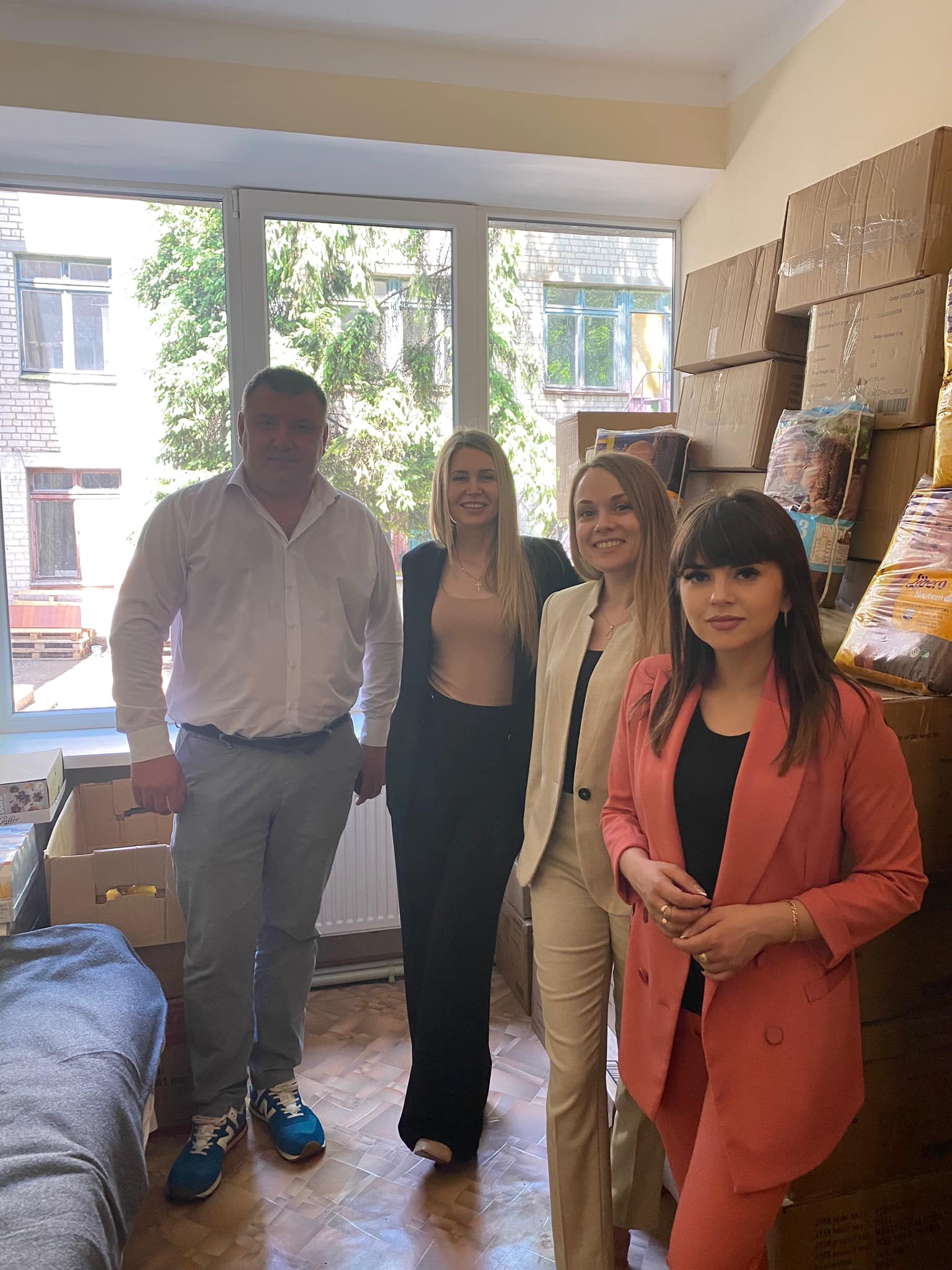
Department's projects
The department where Olena Hemusova works coordinates the activities of international organizations in the Luhansk region and cooperates with diplomatic missions of foreign countries abroad and Ukrainian consulates and embassies in other countries.
The team implements innovative projects in its native region and promotes the image of the Luhansk region. The department participated in developing the My Luhansk Region project. The entire area got its unique style. Its primary colors were shades of green, yellow, orange, and blue. The animals are a horse (because there were several breeding stud farms in the region), a steppe marmot (lives only in the northeast of our country), and a fox (it came from the miners' settlement that clustered around the first mine in Lysychansk). Another 13 communities of the region received their "faces"; the department worked on creating their brands.
Among the innovative projects, Olena Hemusova mentions the Solar Community in Rubizhne. They installed benches, lights, and surveillance cameras on sun-green energy a year ago. In other communities, 3D modeling and robotics circles were established. None of the department members knows the current state of these projects and whether anything has survived.
In Dnipro, officials' work areas have stayed the same, but their content has changed.
"Before the events of February 24, we worked for the region's development, but now it is impractical and impossible to implement any projects in the Luhansk region. We want to support Luhansk's internally displaced people," says Olena Hemusova.
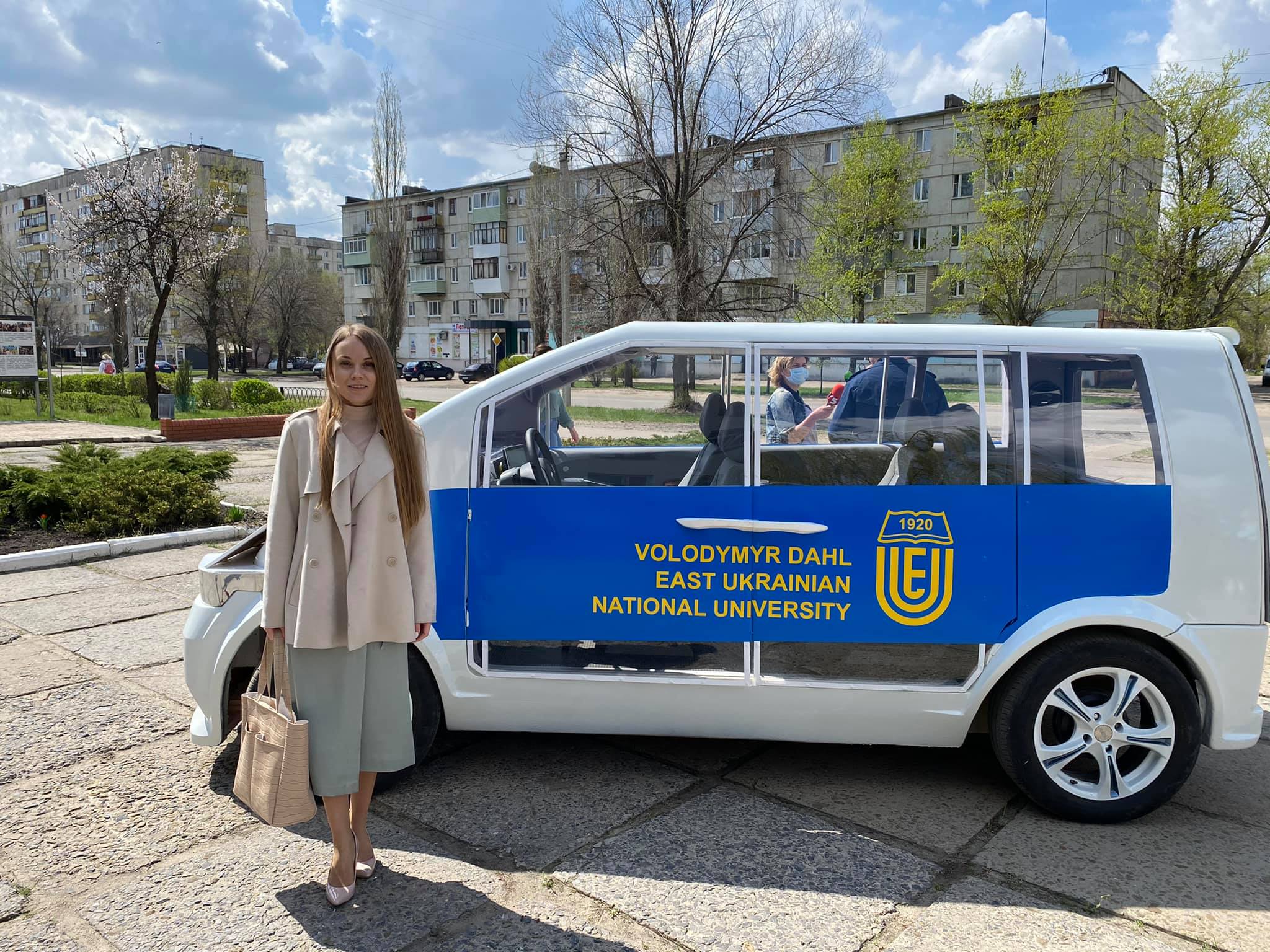
Coworking space
Coworking Space was one of the first projects in Dnipro.
"The idea arose to create a space where people could use laptops for free, communicate with relatives online, and hold their events," says Olena Hemusova.
The department turned to the EGAP Program of the Eastern Europe Foundation with a request to support the idea financially. The Luhansk team found the premises for the future space and made electricity repairs on their own. Foreign partners already helped with the arrangement. Furniture and equipment were purchased for 500,000 hryvnias — 10 jobs were created.
In addition, the coworking space has an isolated small office where you can work separately: for example, to conduct interviews and a kitchen to have a snack. Two tablets were bought for visiting children to watch cartoons while their parents were busy.
IDPs, public organizations, and representatives of military administrations can use coworking. You must register through the Google form available on the space's Facebook page to do this.
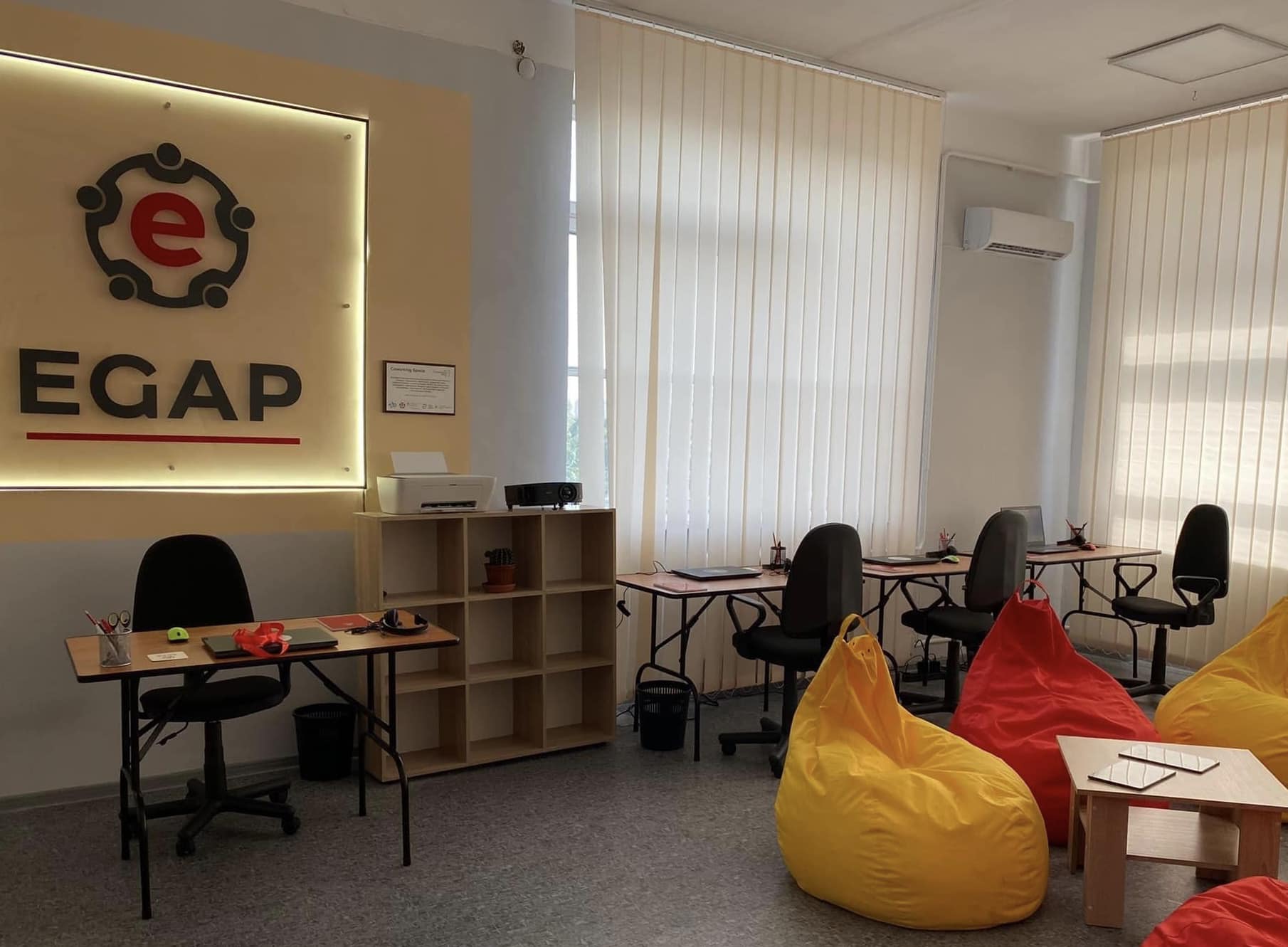
"The primary idea has been to support IDPs from the Luhansk region, but displaced people from other regions can come here. There are no restrictions. We publish news and announcements of coworking events on Facebook. There is also a Google calendar and a Google form for visitors to register. A person writes their name and surname, chooses a convenient time, and then comes to the coworking space. We also provide free legal assistance here."
In the coworking space, you can work and hold events. Recently, children who moved to Dnipro from the Luhansk region wove mandalas-charms in the space. There will be computer literacy training and Ukrainian and English classes in the future.
"We don't want to create projects so that they stand idle. This space should work," says Olena Hemusova.
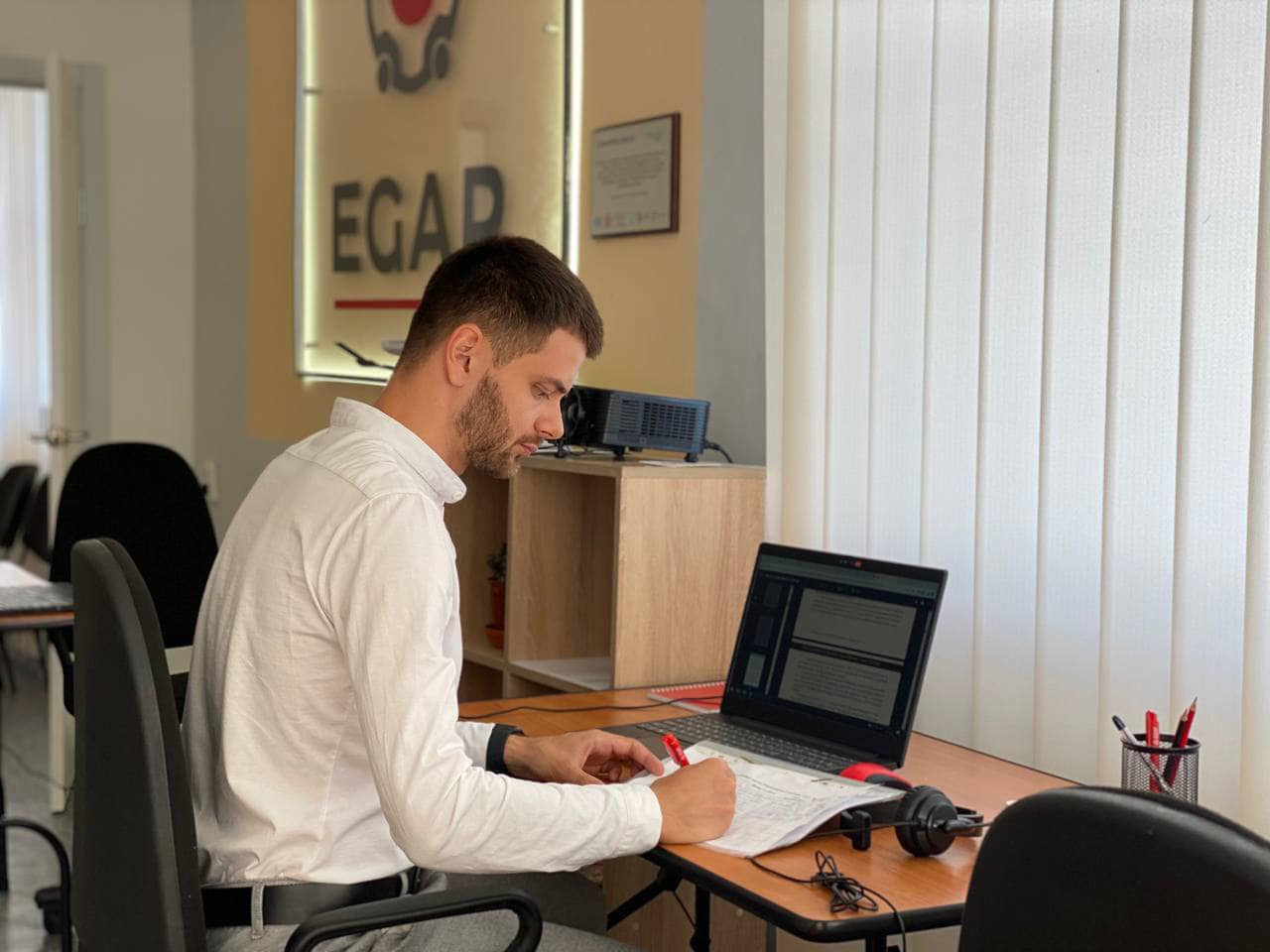
The civil servant says that in the coworking space, you can meet other residents of the Luhansk region, talk about their hometowns, and look for acquaintances.
"We have an older man who comes by every day. He is creating some projects. It is vital that elderly people, who were left without their relatives, could communicate with them online."
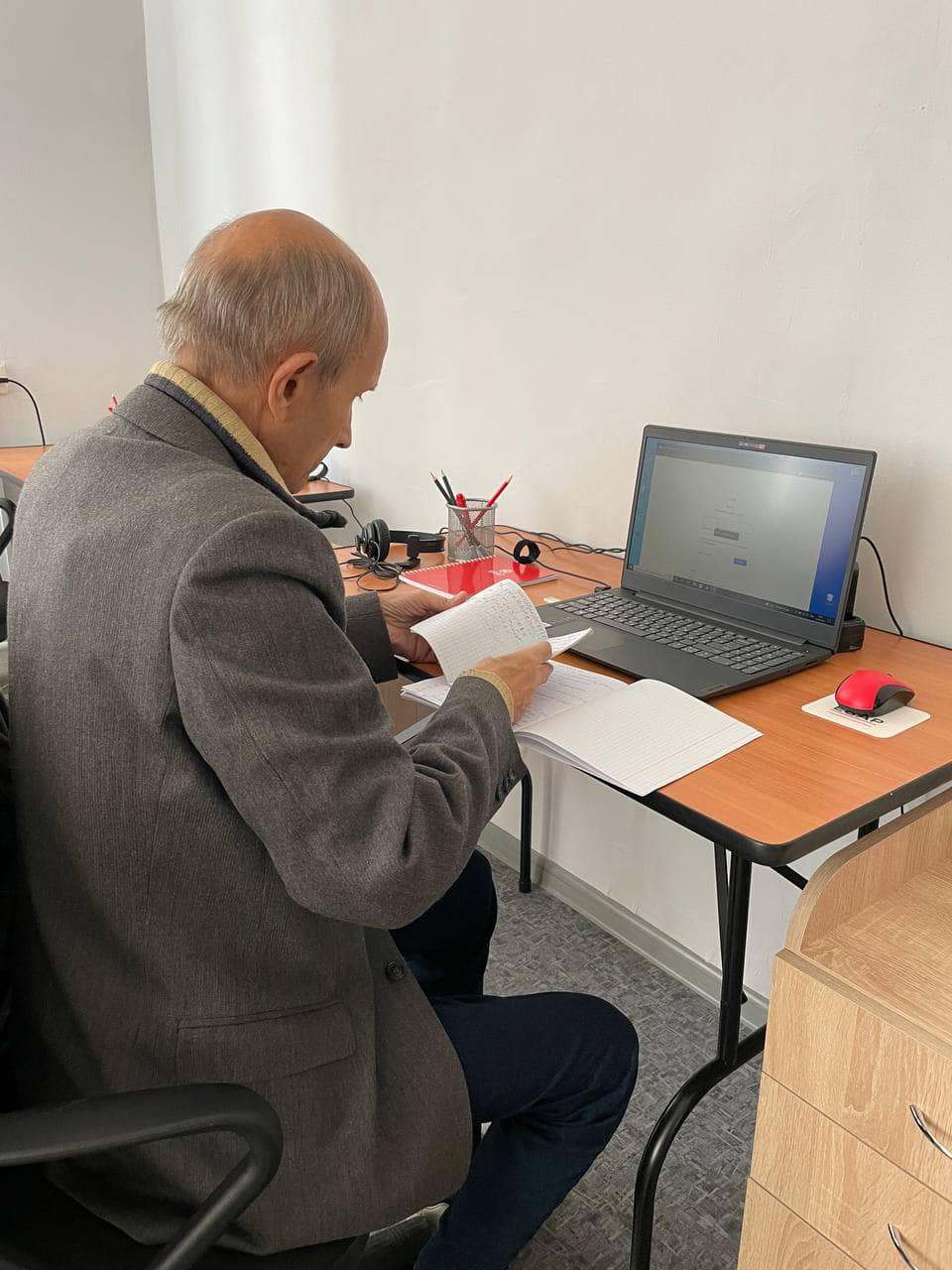
The coworking space in Dnipro was set up in a few weeks — it started working at the beginning of summer. A similar one, but with an emphasis on children, teenagers, and the elderly, should appear at the shelter, which is looked after by the department's team. About 100 people live there, and after the work is finished, there may be 250.
"About 20 children live there, and they spend a lot of time on their phones because now they study remotely. We will arrange workplaces with computers in the newly created coworking space. Children will be able to use them for their lessons. We are also going to conduct digital literacy training there."
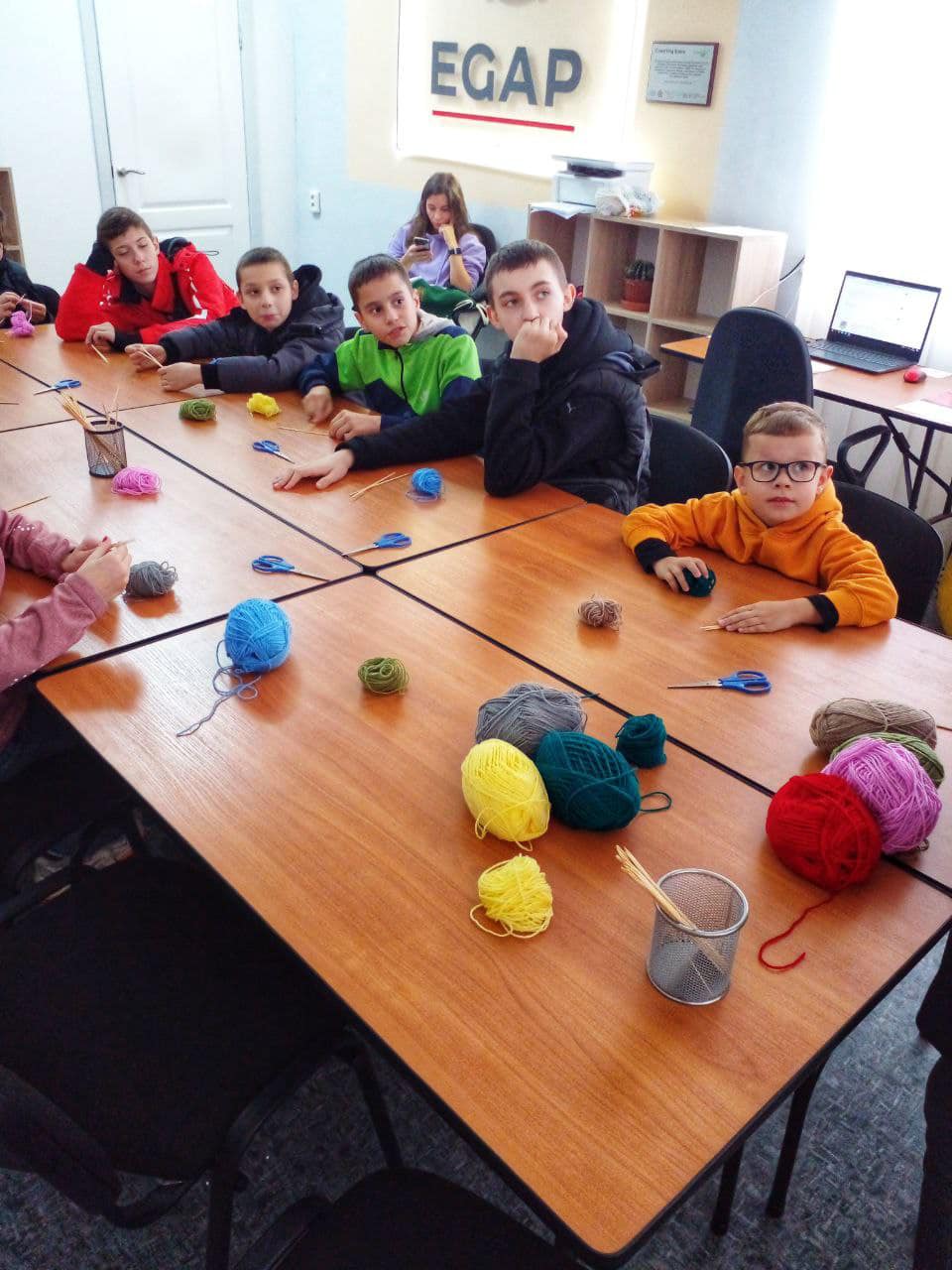
The Ministry of Foreign Affairs of Germany supported establishing the Center for medical services at the shelter. Representatives of emergency care are on duty on the premises 24 hours a day. Displaced persons can receive qualified help from doctors at any time.
While the Department of International Technical Assistance, Innovative Development, and External Relations team plans to stay in Dnipro, many projects are planned. But as soon as the war ends, they will return to their hometowns in the Luhansk region.
"We believe that soon the Luhansk region will be de-occupied. After the liberation, a lot of work will begin to restore the territories. We are ready to unite with all our forces," says Olena Hemusova.
Newsletter
Digest of the most interesting news: just about the main thing








